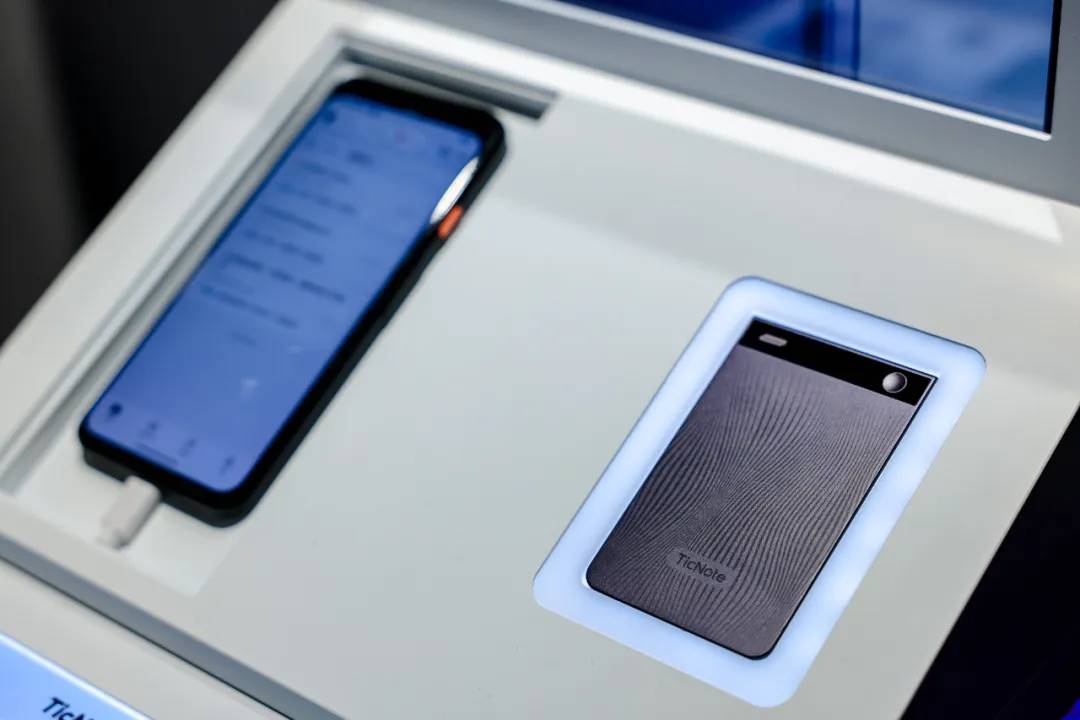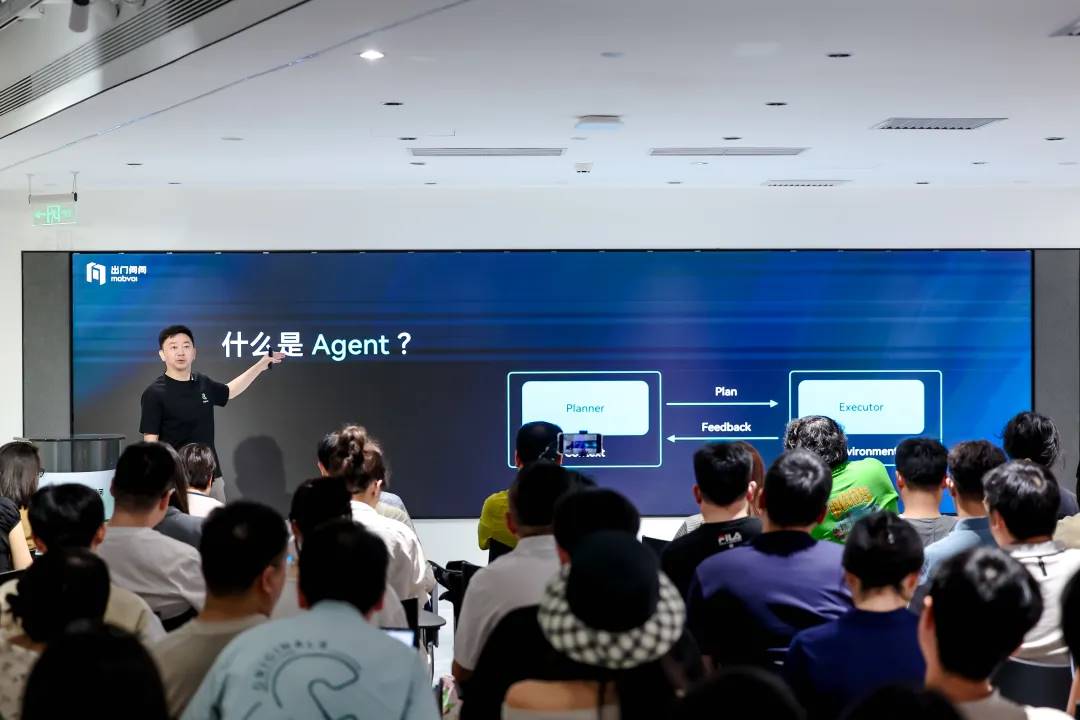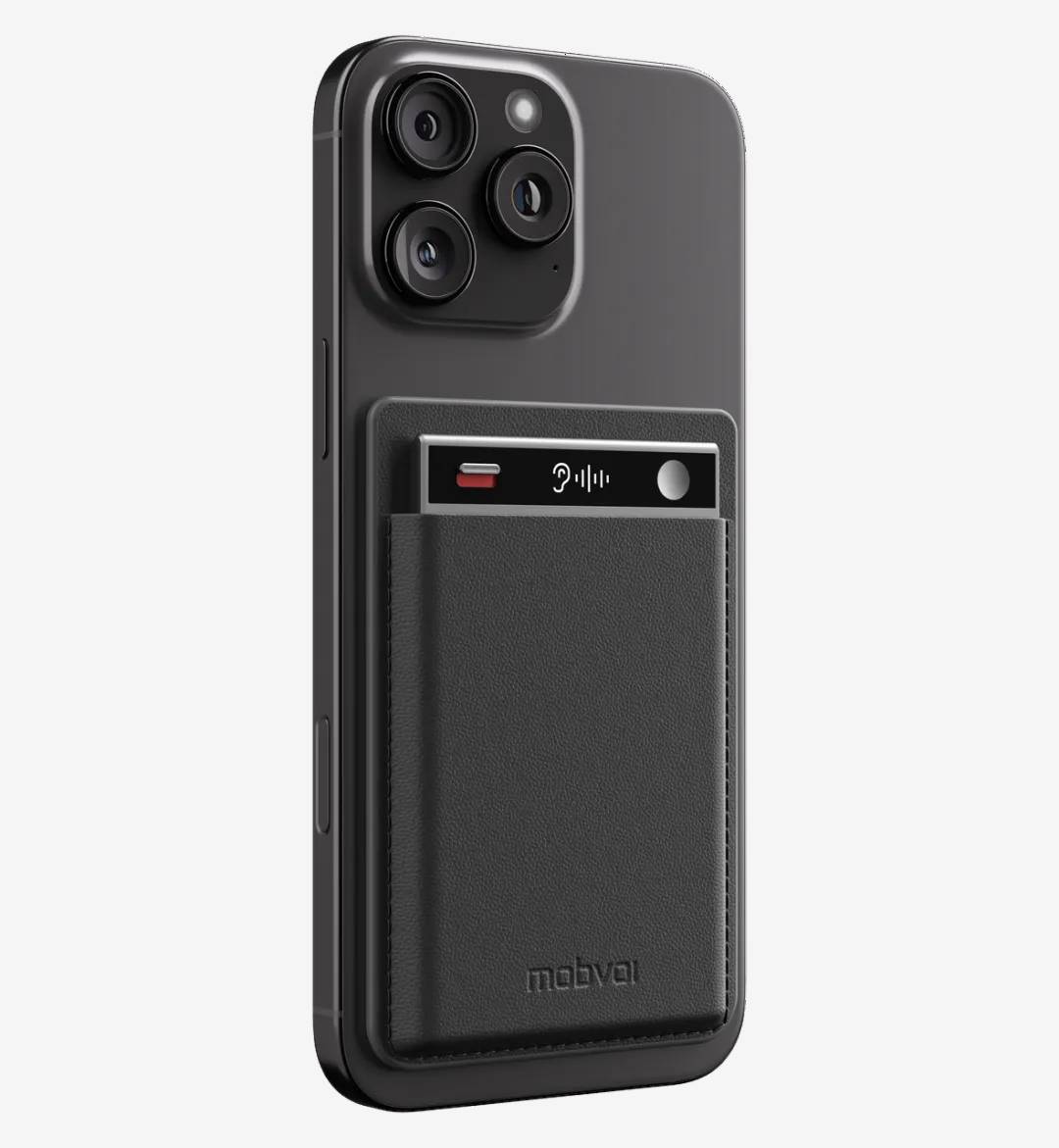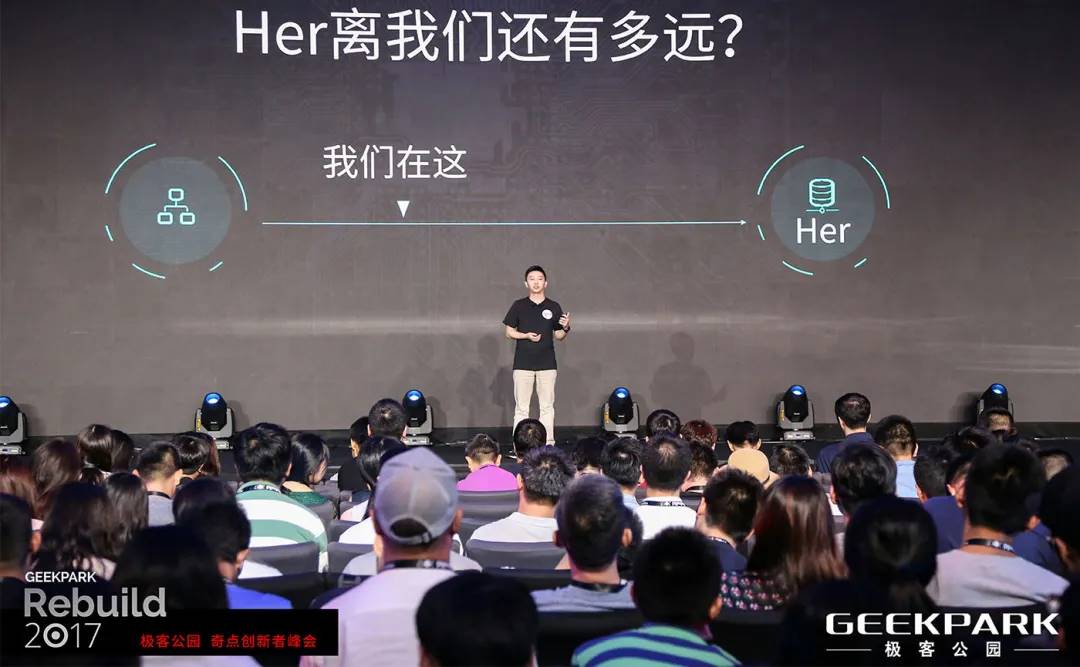Author: Cool Geek

This year, large model foundational capabilities have once again achieved a leap, with AI tools like ChatGPT, DeepSeek, and Doubao becoming increasingly common assistants for workplace professionals.
These AI capabilities are indeed powerful, but they also have a significant threshold: to make them "work", one often needs to prepare a large amount of information in advance. In other words, today's AI is more like a high-intelligence consultant, and from the perspective of actual efficiency improvement, what we truly need is an "intelligent assistant" that stays by our side, helps record information, and provides reminders and feedback at critical moments.
Mobvoi is attempting to fill this gap. In April, the company publicly unveiled its first global Agentic AI hardware product, TicNote, which was officially launched in China on June 25th. At the launch event, Mobvoi founder Li Zhifei emphasized that this is not just a voice recorder, translator, or voice assistant, but a "portable AI thinking partner".

Before Mobvoi, some domestic and international companies had attempted to combine large models with recording hardware, but most still treated AI as an audio information processing tool, primarily used for organizing meeting minutes or translation. While TicNote has similar capabilities, its positioning goes beyond that. By continuously recording users' work and life information, TicNote essentially becomes a "super assistant" that accompanies users 7x24 hours, capable of proactively providing work inspiration and insights based on daily communication content and the reasoning capabilities of large models.
As an "old friend" of GeekPark, we have witnessed Mobvoi's journey from startup to listing, and experienced its periodic strategic contraction in the large model direction. Now, Mobvoi's choice to re-enter the large model track through hardware is not simply chasing a trend or imitating others, but a result of founder Li Zhifei's years of accumulation in the human-machine voice interaction field - while seeing existing paths being validated, he also saw deeper possibilities and hopes to create a better product in this direction.
01
A Portable "AI Assistant"
TicNote's appearance is similar to a compact magnetic power bank, with a body thickness of about 3 millimeters, which can be magnetically attached to the back of a mobile phone all day, hardly affecting daily use.

TicNote | Source: Mobvoi
Unlike traditional voice recorders, TicNote's card-like design is oriented towards "all-day recording" scenarios from the beginning. Users can easily control recording operation modes.
This hardware form is not Mobvoi's original creation; products like Plaud Note had similar designs earlier. Its advantage lies in being able to run stably for long periods in scenarios requiring extensive voice recording, such as education, media, and creative planning, while leveraging large model capabilities to improve efficiency in post-processing tasks like transcription, translation, and summarization.
This application scenario has been market-validated to a certain extent, but Mobvoi believes that the combination of card-style recording hardware and large models contains greater potential beyond recording and processing functions.
In addition to basic functions like transcription and summarization, TicNote's biggest feature is its built-in AI Agent "Shadow AI". Supporting real-time dialogue, logical reasoning, knowledge integration, and writing suggestions, it can more deeply understand users' content creation needs. Whether in work, learning, or inspiration exploration, it can maintain dialogue with users, assist in task completion, and become an intimate intelligent assistant.
[The translation continues in the same manner for the rest of the text]
Looking back, TicNote is not a turn in technical direction, but more like a completion - it brings together every step HT has taken over the past decade, concentrating experiences scattered across human-machine interaction, hardware design, AI services, and other levels into a product more suitable for this era.
03
In the future, everyone will need a "high-dimensional memory warehouse"
Currently, ADHD has become a popular social topic. "Difficulty concentrating" as a syndrome is becoming increasingly prevalent. Beyond actual ADHD patients, more and more ordinary people are discovering similar symptoms in themselves, and even beginning to "self-diagnose".
This is closely related to the massive information overload we are experiencing. Looking forward, humans have never before received and processed such a large volume of information daily, which enters not just through mobile phones but exists in every life scenario. We receive too much information daily, while our cognitive retention period grows increasingly shorter.
In the past, a common perception was that intellectual labor was easier compared to physical labor, and working in an office was a "privilege" for a few and a collective aspiration. But now, more people engaged in information-based work feel exhausted and even weary.
We are increasingly aware that processing information is also a burden that can cause "wear and tear". Currently, we need to reduce the load on our brains, just as mechanical tools replaced physical labor. Such devices must necessarily possess perception, interaction, and the ability to assist in thinking and insight, becoming our "pre-sensory" and "auxiliary brain".

This might be the ultimate ambition of TicNote and HT's future.
Today, most AI products provide users with "single scenario perspectives", but the ultimate future of AI should be to help users manage their entire memory and thinking, including information, knowledge, and memories. The industry has already proposed the concept of "life stream", which is essentially our "memory warehouse". What Agentic AI can do is elevate this memory warehouse, excavating thoughts and insights we ourselves are usually unaware of, ultimately reducing our information burden and sparking more inspiration.
In the foreseeable future, each of us will need an agent with perfect memory that can assist our thinking, helping us reorganize received information and increase our cognitive dimensions. The "moment of enlightenment" function built into TicNote has already glimpsed this future. Based on user-saved data, it can provide AI-perspective "insights".
Currently, most AI assistant products are trained on publicly available corpora in a general sense, largely targeting "omniscience" as their training and development goal. However, what most users actually need is a "personalized AI" that better understands our private knowledge, provides personally relevant information, and helps construct personalized experiences.
For HT and Li Zhifei, TicNote represents both a successful implementation of their twelve-year technological ideals and a new departure towards the AIGC future. They waited for the new era of human-machine interaction and AIGC, and TicNote is not a product "speculation" but a fruition of long-term technological "romantic brain".
Last April, HT went public, becoming the first AIGC stock in China. For Li Zhifei and his team, solving the "money" issue was never the most important thing - more crucial was their ability to polish the technology they believed in to its best state and then bring it to the world.
Now, they have taken another solid step.






